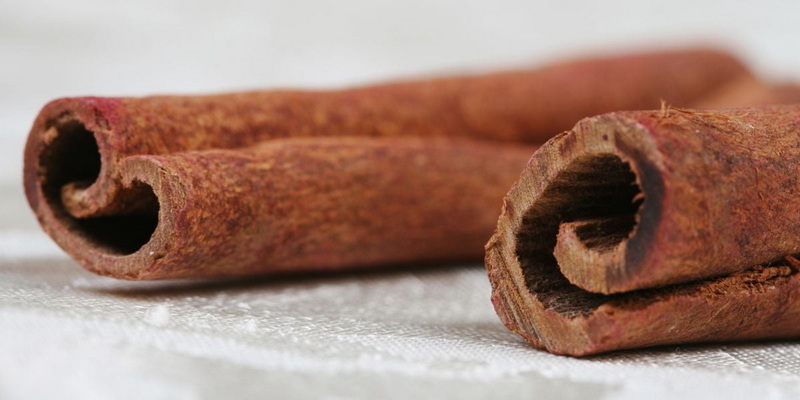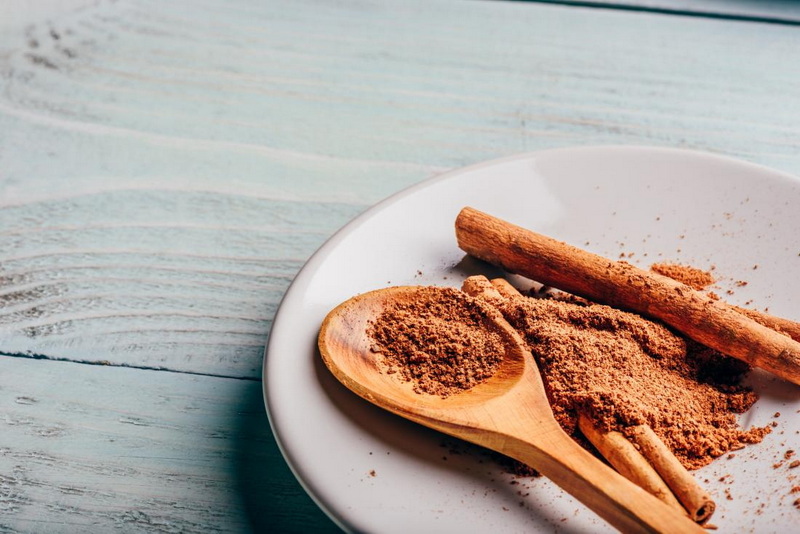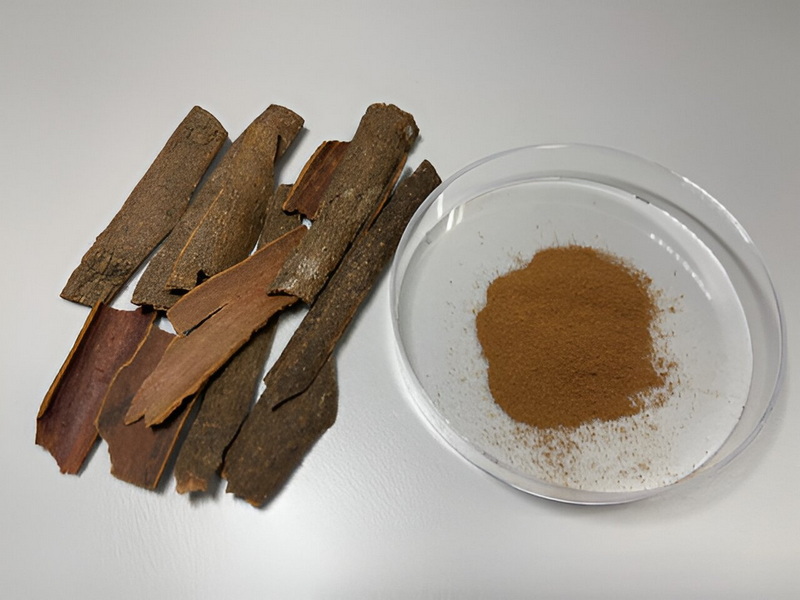Content Menu
● Introduction to Cinnamon Bark Extract
>> Cinnamon Bark Extract and Diabetes
● Mechanisms of Action
● Clinical Evidence
● Practical Considerations
● Potential Side Effects and Safety Considerations
● Future Research Directions
● Conclusion
● FAQ
>> 1. What is the recommended dosage of cinnamon bark extract for diabetes management?
>> 2. Can cinnamon bark extract be used alongside conventional diabetes medications?
>> 3. What are the potential side effects of cinnamon bark extract?
>> 4. Does cinnamon bark extract affect blood lipid profiles?
>> 5. Is cinnamon bark extract effective for both type 1 and type 2 diabetes?
● Citations:
Cinnamon, a spice derived from the bark of the Cinnamomum tree, has been extensively studied for its potential health benefits, particularly in managing diabetes. The focus of this article is on whether cinnamon bark extract can improve insulin sensitivity in diabetic patients. We will delve into the scientific evidence, mechanisms of action, and practical considerations for using cinnamon bark extract in diabetes management.

Introduction to Cinnamon Bark Extract
Cinnamon is known for its warm, sweet flavor and has been used for centuries in traditional medicine. The active compounds in cinnamon, such as cinnamaldehyde, are believed to contribute to its potential health benefits. Cinnamon bark extract is often used in supplements due to its concentrated form of these active compounds.
Cinnamon Bark Extract and Diabetes
Diabetes mellitus, particularly type 2 diabetes, is characterized by insulin resistance and impaired insulin secretion. Insulin resistance occurs when the body's cells do not respond effectively to insulin, leading to elevated blood glucose levels. Cinnamon bark extract has been investigated for its potential to improve insulin sensitivity and glucose metabolism.
Mechanisms of Action
Several mechanisms have been proposed for how cinnamon bark extract might improve insulin sensitivity:
1. Enhancing Insulin Signaling: Cinnamon extracts may enhance insulin receptor signaling, promoting glucose uptake in cells.
2. Increasing GLUT4 Expression: Cinnamon can increase the expression of glucose transporter type 4 (GLUT4), which facilitates glucose uptake into skeletal muscle and adipose tissue.
3. Reducing Inflammation: Cinnamon has anti-inflammatory properties, which can help mitigate inflammation-related insulin resistance.
Clinical Evidence
Numerous studies have explored the effects of cinnamon on diabetes management, with varying results:
- Long-term Studies: Some long-term studies suggest that cinnamon supplementation can improve glycemic indices, such as fasting plasma glucose and hemoglobin A1c (HbA1c), in patients with type 2 diabetes. For instance, a study published in the *Journal of Medicinal Food* found that cinnamon supplementation significantly reduced HbA1c levels over a period of three months.
- Short-term Studies: Acute effects of cinnamon on postprandial glucose and insulin responses have shown mixed results. While some studies indicate a reduction in insulin levels, others find no significant effect on glucose levels. This variability may be due to differences in dosage, duration of treatment, and individual patient characteristics.

Practical Considerations
When considering cinnamon bark extract for diabetes management, several factors are important:
1. Dosage: The effective dosage of cinnamon bark extract varies across studies, but common ranges are between 1 to 6 grams per day. Higher doses may be more effective but also increase the risk of side effects.
2. Type of Cinnamon: Different species of cinnamon (e.g., Cinnamomum cassia vs. Cinnamomum verum) may have varying effects due to differences in active compounds. Cinnamomum cassia, commonly known as Chinese cinnamon, contains more coumarin, which can be toxic in high doses.
3. Interactions with Medications: Patients should consult healthcare providers before using cinnamon supplements, especially if they are taking other medications for diabetes or cardiovascular conditions. Cinnamon may enhance the effects of certain medications, potentially leading to hypoglycemia.
Potential Side Effects and Safety Considerations
While cinnamon bark extract is generally considered safe, there are potential side effects and safety considerations:
- Gastrointestinal Issues: Some individuals may experience gastrointestinal upset, such as nausea or diarrhea, when consuming cinnamon supplements.
- Liver Damage: High doses of cinnamon, particularly from Cinnamomum cassia, can cause liver damage due to coumarin content. Therefore, it is crucial to choose a supplement with low coumarin levels.
- Allergic Reactions: Rarely, individuals may be allergic to cinnamon, which can cause skin rashes or more severe reactions.
Future Research Directions
Despite the promising evidence, more research is needed to fully understand the effects of cinnamon bark extract on diabetes management. Future studies should focus on:
1. Standardizing Dosage and Duration: Establishing a standardized dosage and treatment duration will help clarify the efficacy of cinnamon supplements.
2. Comparing Cinnamon Species: Further research comparing the effects of different cinnamon species will provide clearer guidance on which types are most beneficial.
3. Combination Therapy: Investigating the use of cinnamon bark extract in combination with conventional diabetes medications could reveal synergistic effects.
Conclusion
While cinnamon bark extract shows promise in improving insulin sensitivity and managing diabetes, the evidence is not conclusive. More research is needed to fully understand its effects and optimal usage. Patients with diabetes should consult healthcare professionals before incorporating cinnamon supplements into their treatment plan.

FAQ
1. What is the recommended dosage of cinnamon bark extract for diabetes management?
The recommended dosage varies, but common ranges are between 1 to 6 grams per day. However, it's crucial to consult with a healthcare provider for personalized advice.
2. Can cinnamon bark extract be used alongside conventional diabetes medications?
Yes, but it's essential to consult with a healthcare provider to ensure safe interactions with other medications.
3. What are the potential side effects of cinnamon bark extract?
Common side effects are rare but may include gastrointestinal upset. High doses can cause liver damage due to coumarin content in some cinnamon species.
4. Does cinnamon bark extract affect blood lipid profiles?
Some studies suggest that cinnamon can improve lipid profiles by reducing total and LDL cholesterol, though results are inconsistent.
5. Is cinnamon bark extract effective for both type 1 and type 2 diabetes?
Most research focuses on type 2 diabetes. There is limited evidence regarding its effectiveness for type 1 diabetes.
Citations:
[1] https://www.frontiersin.org/journals/nutrition/articles/10.3389/fnut.2020.619782/full
[2] https://pubmed.ncbi.nlm.nih.gov/29605574/
[3] https://pmc.ncbi.nlm.nih.gov/articles/PMC10494518/
[4] https://pmc.ncbi.nlm.nih.gov/articles/PMC2901047/
[5] https://pmc.ncbi.nlm.nih.gov/articles/PMC3767714/
[6] https://pmc.ncbi.nlm.nih.gov/articles/PMC5067830/
[7] https://www.healthline.com/nutrition/cinnamon-and-diabetes
[8] https://www.mayoclinic.org/diseases-conditions/diabetes/expert-answers/diabetes/faq-20058472






























